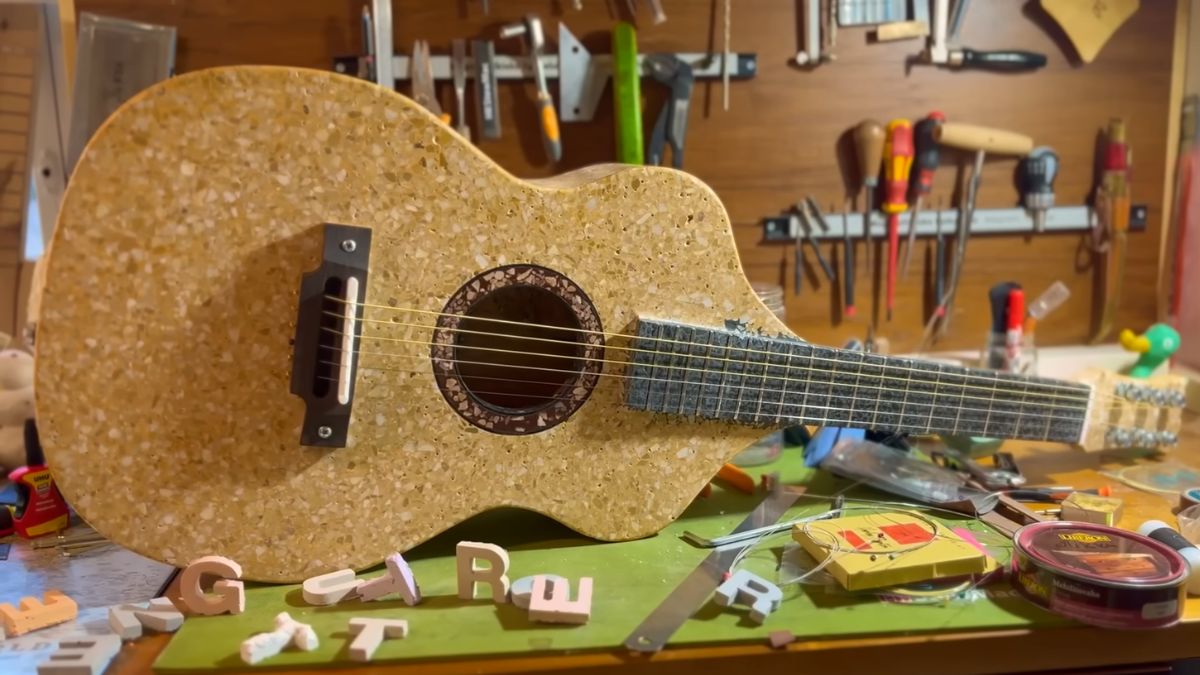Marcus King: "I never called myself a blues artist - I’m an admirer of the craft"
The venerated player has accomplishments that belie his short career. We chat with the man himself about gear and playing with the world's most noted blues guitarists
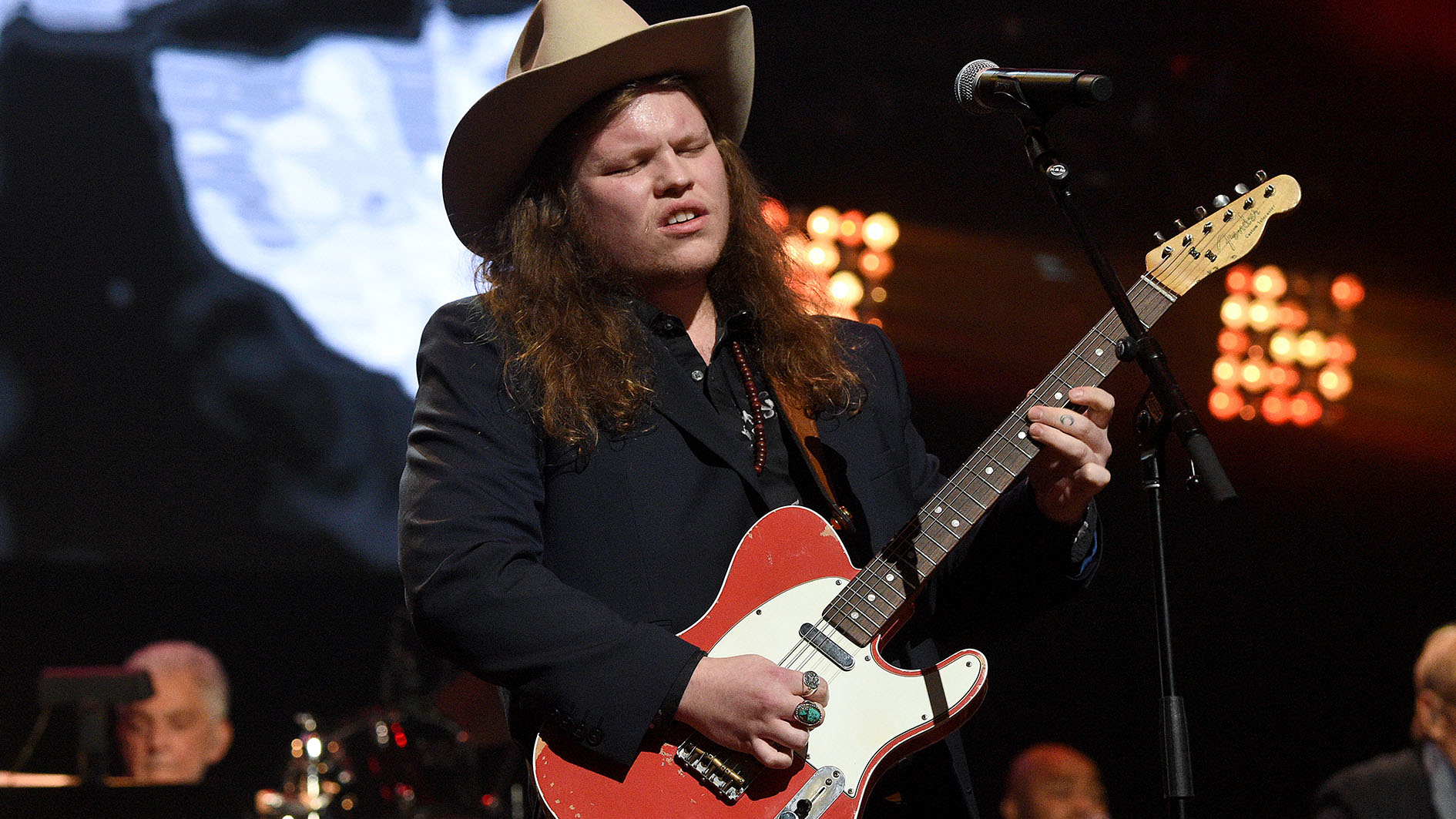
Marcus King is not a bluesman. He might play some bluesy riffs and know his way around a fuzzed-out pentatonic solo - but Marcus King is definitely not a bluesman. Just ask him. “I never called myself a blues artist,” he says in his soft Southern drawl.
“Any time you see it written down, it’s another man’s words. It’s because for me I think the authentic nature of the blues, only a few people truly hold that. I’m an admirer of the craft. Someone like Eric Clapton really holds the title because he’s such a reservationist to the music and he goes through his fair share of shit as well.
“Muddy Waters, Robert Johnson, Howlin’ Wolf, Junior Kimbrough, those are blues men to me, and I don’t hold a candle. The way I see it is, I’m an American musician and blues happens to be an American artform. For me, I’m encompassing all these different styles of music and just hoping somebody will listen.”
On his new album, El Dorado, the South Carolina-born King backs up his claim, dipping his toes into country, acoustic balladeering, soul and rock ‘n’ roll.
When I get King on the phone, it’s a few weeks before Christmas, but he isn’t taking any time off to set up a tree and down some eggnog. He’s been on the road for weeks, promoting the yet-to-be-released El Dorado the only way he knows how.
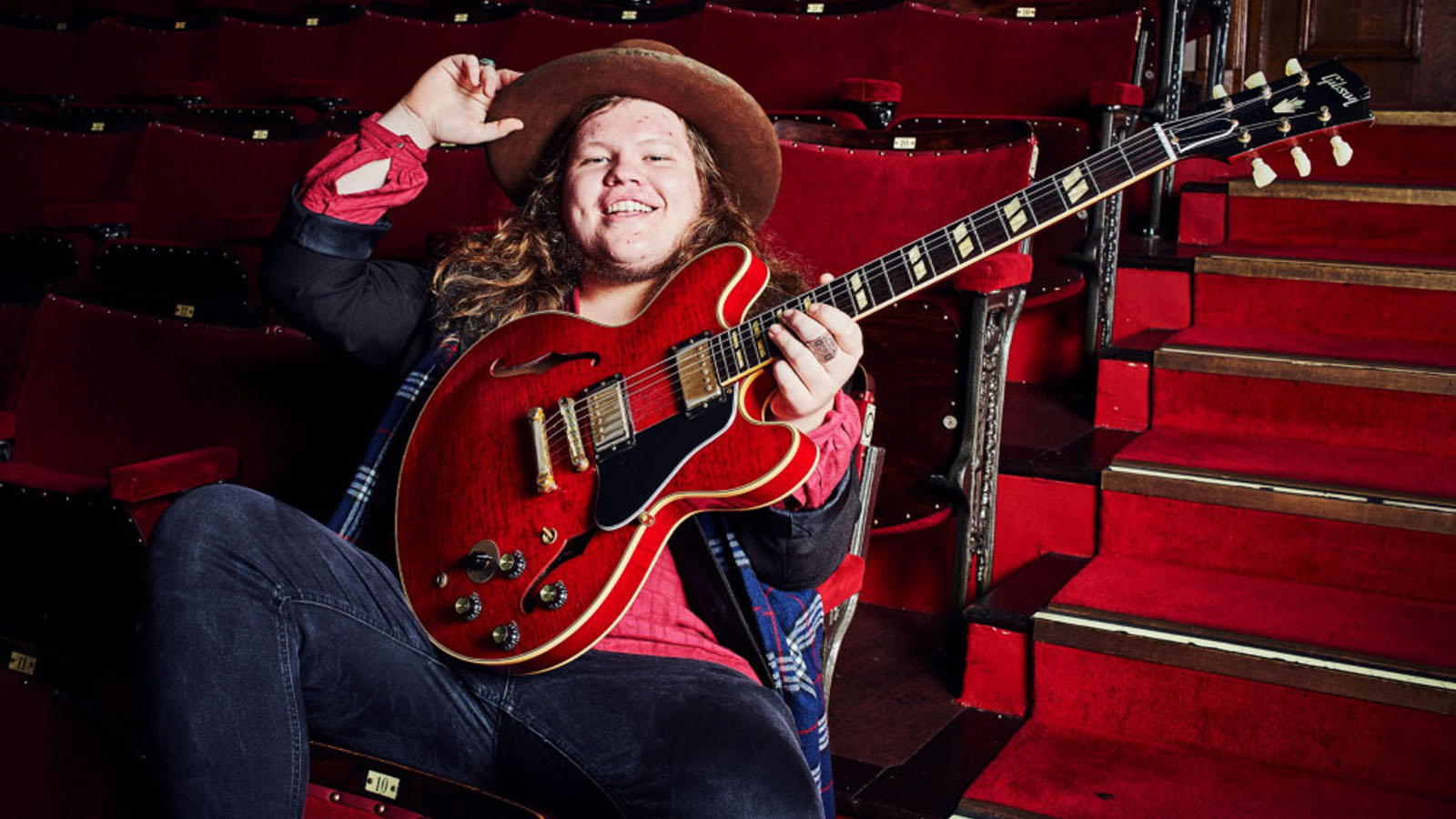
“We’ve been trying to hit three cities a night, or at least that’s how it feels. We’ve been running constantly and just trying to cover as much ground as we can,” he says. “The band is feeling as good as ever. No reason not to work it.”
That band includes his usual cohorts in the Marcus King Band, the project that has released three albums since 2015. But while King called on his regular bandmates when it came time to tour, El Dorado was very specifically made to be a solo project. Ironically, this album is also the first one where King wasn’t the sole songwriter.
Get The Pick Newsletter
All the latest guitar news, interviews, lessons, reviews, deals and more, direct to your inbox!
This time, King worked on the material with producer Dan Auerbach, perhaps best known as the guitarist and vocalist for retro-rock titans the Black Keys. The creative partnership started two years ago when Auerbach got in touch with King’s management, saying he wanted to meet with him to work on some material.
Slated for a few days off before heading to Paris, King jumped at the opportunity, headed to Nashville and got to work.
For me, music is my voice so if I put out something I’m not confident in, it’s only going to eat away at me
“It’s always been my process; I’ve never been one to co-write,” King says. “On this one, I really made the effort to enter in that world. It’s a really vulnerable place. It’s kind of like a first date; you have to be willing to open yourself up and be vulnerable. That’s what songwriting is.
"When I sit down to write with someone else, I’m an open book and I want to write about real shit that’s happened to me. I saw in Dan someone who’s no-bullshit about the music. He takes the part seriously. I saw him as a kindred spirit who does what he feels. He doesn’t put on any airs for anybody and I always respected that about him and his music.
"When I was given the opportunity to work with him I couldn’t think of anyone else I could work with easier because he understands more than anybody how important your sound is to you and how it defines you. For me, music is my voice so if I put out something I’m not confident in, it’s only going to eat away at me. He was the right choice for me to tell my story on my first solo venture.”
That story sees King shifting away from the Southern rock on which he’s built his reputation. While there are plenty of interesting guitar tones and textures throughout the album, outside of a few barnburners like first single The Well, there’s relatively little explosive soloing or riffs. This is the record where King comes into his own not as a guitar player who fronts a band, but as a versatile and powerful singer.
“It’s such a big part of who I am, the guitar. On this record the intention was to shine more of a light on the vocals in the writing process, which came as a little bit of a different approach than I’ve taken with the Marcus King Band,” King says.
“Another thing to notice is there’s no horns. It was a very different approach for me and one I was really excited to do. I approached it a lot differently singing-wise.
"Whereas in the past I learned to sing as loud as possible because when there’s a large, rowdy bar crowd you have to sing over, as well as an inadequate PA and loud band, you learn to sing loudly. In the studio this time around I learned to sing with a softer approach, which I think opened the vocal range a bit.”
That softer approach yields a result not unlike one of King’s major influences - on softer numbers like album opener Young Man’s Dream his voice wavers like Harvest Moon-era Neil Young.
Young has built a career as a chameleon, jumping from acoustic ballads to proto-grunge noise. El Dorado hints at an equally eclectic career ahead for King; even disco gets a fair shake on One Day She’s Here. But to hear him tell it, the multitude of styles that appear on the album was by no means a conscious decision but just what was happening in his brain during the writing process.
“I never sit down and say, ‘I’m going to write a country song’ or ‘I’m going to write a rock and roll tune,’” King says. “The song will tell you what it wants to be. You just have to sit down and listen to it and make it so in the production process. I have a lot of influences from when I was a kid and now, whether it be the good shit from the disco era like Harold Melvin and the Blue Notes, which is where that string pop stuff comes from.
"Merle Haggard was a big influence on me, or Willie Nelson. That’s where you get stuff like Too Much Whiskey. That’s the kind of stuff I grew up playing. Soul music was a big part of my childhood and adult life. It just makes sense the album would follow all the genres I like.
"There was no feeling of being restrained to one particular genre. That’s what I liked about working with Dan Auerbach; he allows me to venture into all these categories.”
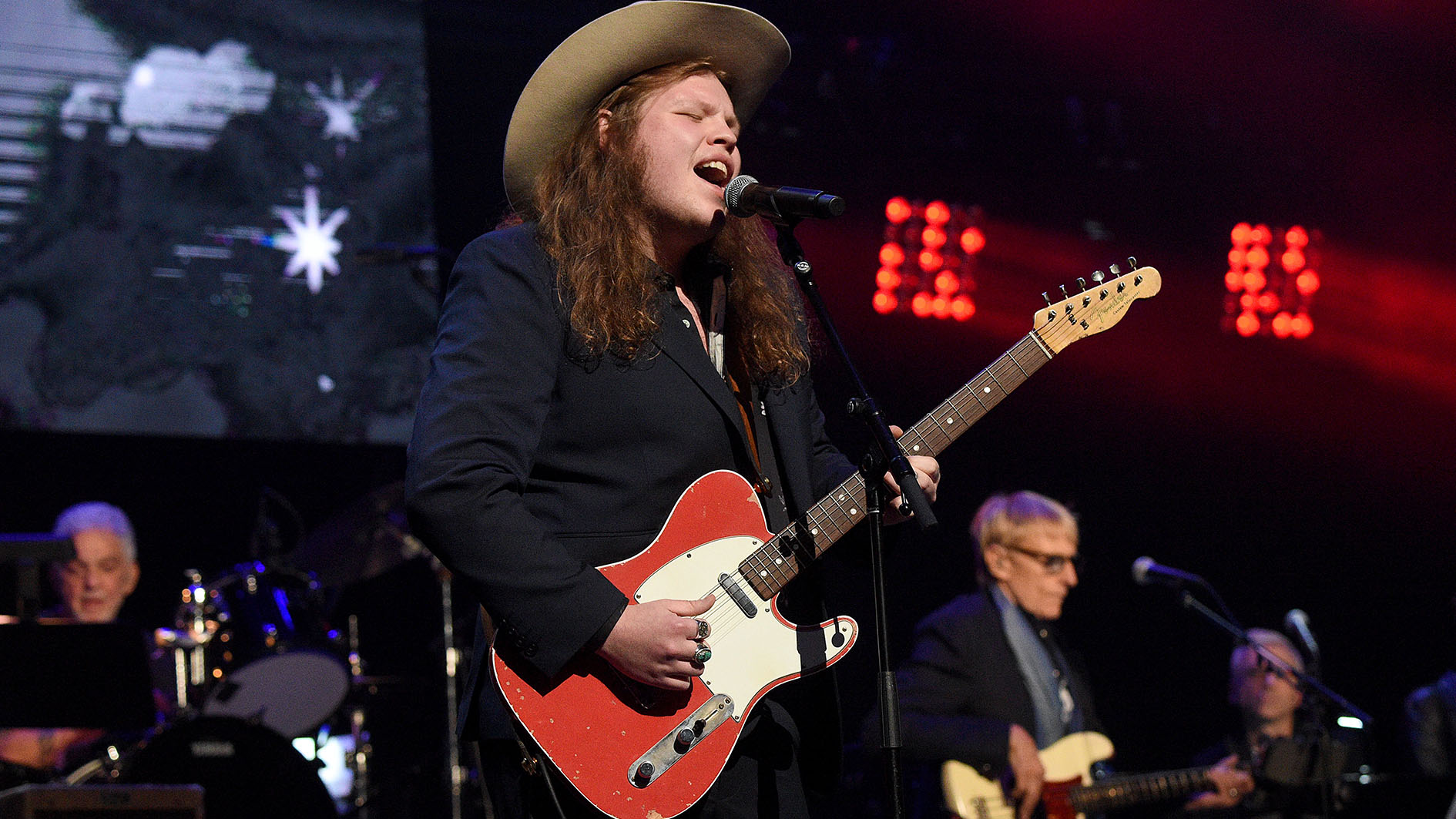
Of course, with rock ‘n’ roll relegated to a niche genre these days, a sound that’s too eclectic could make it harder to find an audience. But King is deploying that possible weakness as a strength, signing up for tours that, on paper, might not seem like there’s much in common, but make perfect sense for King’s sound.
“We did a tour with Chris Stapleton, and I feel comfortable there with a country audience,” King says. “I did a tour with [the Black Crowes’] Chris Robinson and I feel comfortable there with more of a rock crowd.
I’m really just creating a space for people who are like me, who like different styles of music but really just enjoy real music
"I’ll walk around and play with some soul musicians and I feel at home there. I’m really just creating a space for people who are like me, who like different styles of music but really just enjoy real music. I’m creating an atmosphere at my shows and on my records for people who like a lot of different things.”
To get the array of tones required to cover such broad sonic ground, King sang into a ribbon microphone to get a little bit of dirt and grit on the vocal tracks. Guitarwise, he reached mostly for a ’61 Telecaster with a rosewood fretboard. There was also an Auerbach-owned “lawsuit” Ibanez SG style (“My friends at Gibson wouldn’t be happy to hear that,” King laughs).
A more legit Gibson also appeared on the record - the 1962 Gibson ES-345 King has owned since he was 18, his main axe in the Marcus King Band.
"Gibson and I are working on a copy of that, a signature model using that guitar,” King says. “They’ve done a fantastic job of replicating it, and I have the prototype with me on the road now.” [Editor’s note: The Marcus King ES-345 was not among Gibson’s new offerings at the 2020 Winter NAMM Show in Anaheim, California, but we have our eyes peeled!]
Amp-wise, King has found himself gravitating toward a 50-watt Orange head armed with 6L6 tubes, played through two 2x12 stacks with Vintage 30 speakers, though he’s also got a Fender Super Reverb at all times. “I never fail to have a Super Reverb on the stage with me; it’s the best amp ever made,” King says.
Gear aside, the real secret to El Dorado’s sound is the people playing on it. While the Marcus King Band has been performing the songs live, legendary drummer Gene Chrisman, who has played with everyone from Aretha Franklin to Elvis Presley, laid down the beat while Bobby Wood provided keyboards.
I have confidence in myself as an artist but not to the point of calling myself a peer, but that’s how they treated me, Gene Chrisman and Bobby Wood
Although King’s got an impressive discography for a 23-year-old, he says it was still a terrifying prospect to work with such accomplished sidemen - until they actually started to play.
“It’s always intimidating. I’m intimidated to play with anyone. You never know what somebody has in their back pocket. For me, with this particular band especially, it was like going in and playing with Elvis, like going in and playing with Marvin Gaye because these are the cats who made that sound, the sound I grew up admiring.
"It was certainly intimidating but I look at it as a learning experience like I do with anything. I learned an awful lot and had a fantastic time. There are certain situations where the older generation will be a little less open to the idea of somebody younger coming in and treating them as a contemporary or peer rather than some snot-nosed kid.
"I have confidence in myself as an artist but not to the point of calling myself a peer, but that’s how they treated me, Gene Chrisman and Bobby Wood. They treated me like we were working together and I really love that about them.”
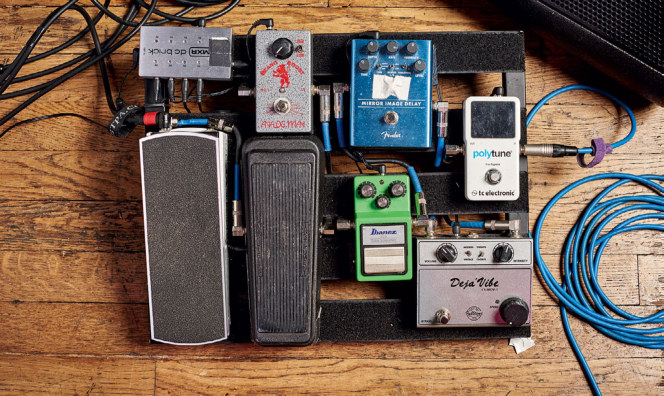
Perhaps part of the reason king fits in so well with old-timers is that he grew up around artists of their ilk. For years he’s gigged with his dad, blues/rock artist Marvin King. His grandfather, a locally popular musician in his own right, once aspired to session work in Nashville but ended up in the military instead.
The younger King says a recent gig at the iconic Grand Ole Opry was a sort of karmic justice for his ancestor. In his youth King absorbed the musical tastes of his father and grandfather but also the realities of being a working musician in an adolescence that left him as an older soul compared to others in his age group.
“I figure a big part of legacy is my love of dad humor. I grew up with my dad and grandfather, that old goofy-guy humor, just hanging out with my grandfather and grandmother and dad all day,” he says. “Aside from that I just played guitar. They would talk about real-world issues and shit going on.
I studied a lot of things at a young age that my favorite musicians would have been going through in everyday life. So I always had more of an understanding of an older generation
"It was adult conversation all day and I would spend hours studying pop culture so a lot of those things these guys referenced in everyday conversation, I understood. I studied a lot of things at a young age that my favorite musicians would have been going through in everyday life. I wanted to learn all about the pop culture surrounding my favorite artists and what I would have dealt with. So I always had more of an understanding of an older generation.”
That combination of reverence for an older generation and a young man’s energy and passion has led King to his current lofty career heights. Country, soul, blues and rock have all been a conduit to convey primal emotions like joy and pain, if not vocally then through visceral instrumentation. With his new-found confidence in his voice, King is better equipped than ever to say what he has to say.
“I hold on to a lot of things that happened to me,” he says. “I think it’s a common thread that Southern men don’t express themselves. A lot of people have trouble expressing themselves and repressing bad memories and bad experiences. I’m guilty of it as well, but some things I want to write about and I don’t feel I have the proper vocabulary or know how to put it into the right words. So I hold onto things and on this record I spoke about different things I’ve been holding on to.
"Sweet Mariona was a song I tried to make work with my band and it just never worked. I finally felt comfortable expressing it. I am 23, but a lot of my favorite artists did incredible things at 23. A lot of people never reference the fact that Gregg Allman was 23 when he played the Fillmore East, and he’s a legend. I think there’s something to be said for being a younger person because you feel emotions a little bit stronger and you’re not as jaded by the world.”
King’s still not a bluesman, but he’s got a lot to say and a mic and guitar to say it with. A solo album and tour are under way, but a return to his own band is imminent - all part of the rock ‘n’ roll arc he’s studied so closely.
“It’s something I’ve always seen happen with a lot of my heroes. When the Allman Brothers were really at the top of the heap around the third or fourth album, which we are, Gregg Allman did Laid Back and the band was in his name,” King says. “I could argue Tom Petty did the same thing with Full Moon Fever.
"It’s been done before, I’m not reinventing the wheel. I just think it’s important to do something on your own and when you come back to your unit, which for me is the Marcus King Band, you have a deeper appreciation for it and you miss those guys.”
Adam is a freelance writer whose work has appeared, aside from Guitar World, in Rolling Stone, Playboy, Esquire and VICE. He spent many years in bands you've never heard of before deciding to leave behind the financial uncertainty of rock'n roll for the lucrative life of journalism. He still finds time to recreate his dreams of stardom in his pop-punk tribute band, Finding Emo.
“There’d been three-minute solos, which were just ridiculous – and knackering to play live!” Stoner-doom merchants Sergeant Thunderhoof may have toned down the self-indulgence, but their 10-minute epics still get medieval on your eardrums
“There’s a slight latency in there. You can’t be super-accurate”: Yngwie Malmsteen names the guitar picks that don’t work for shred

![A black-and-white action shot of Sergeant Thunderhoof perform live: [from left] Mark Sayer, Dan Flitcroft, Jim Camp and Josh Gallop](https://cdn.mos.cms.futurecdn.net/am3UhJbsxAE239XRRZ8zC8.jpg)









